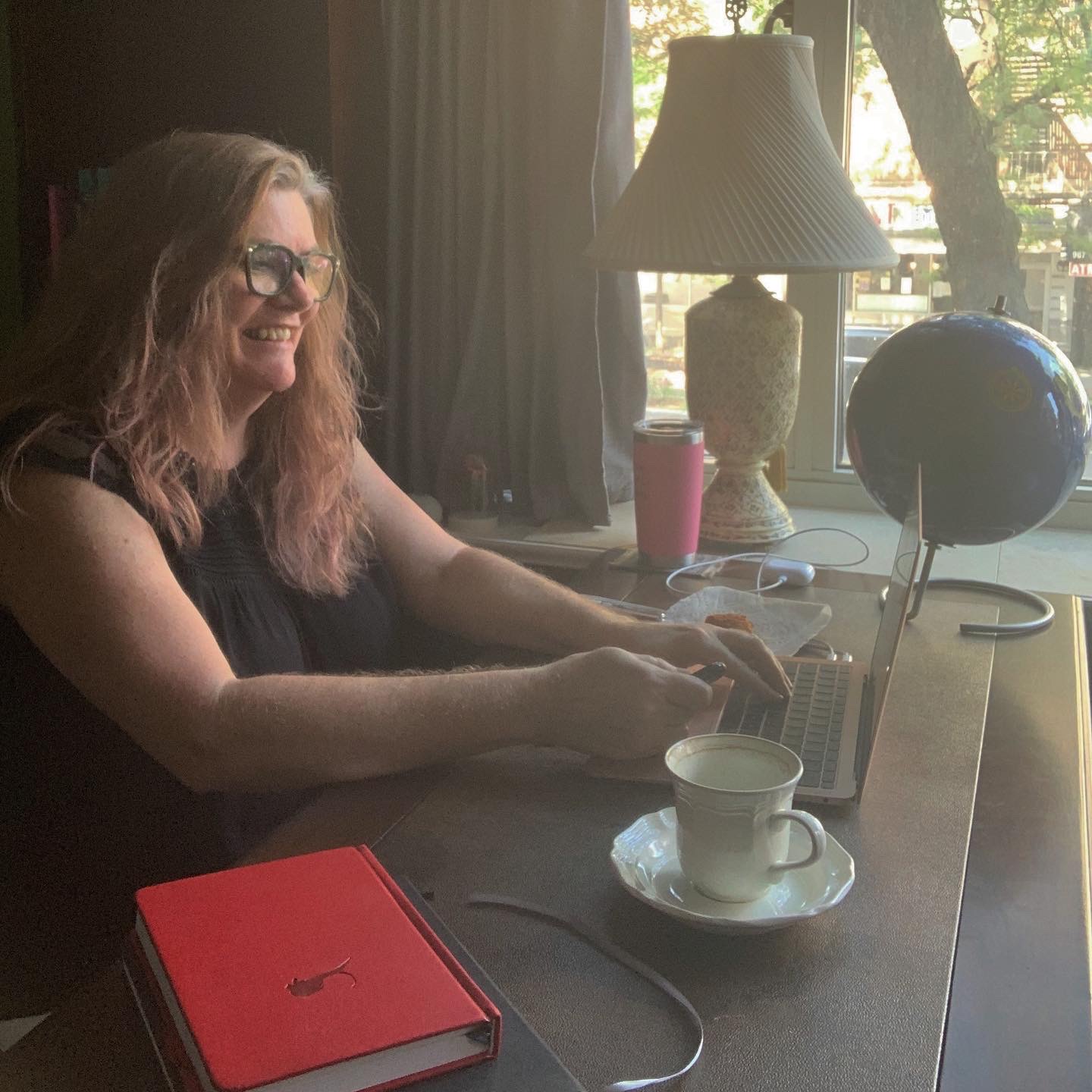I’ve always said that I learn as much from my clients as they do from me. The insights people share with me as they work on their mental health often inspire me and I believe help me to improve as a psychologist and a person. But ever so often people will share their dreams and goals and what they aspire to change and it also motivates me to take a look at myself and how I’m doing with my own mental wellness. Although it is communicated in many different ways, I often hear a statement like, “I want to be the best version of myself”. In spite of it being a frequent comment, it never fails to move me. It makes sense that someone would come to therapy to work on finding the self inside that they connect with the most and that feels the most authentic. I believe that is what most clients mean when they say they are looking for this “best version” of themselves that they would be most in sync with.
In contrast, many people will begin therapy because they are feeling disconnected from themselves. Possibly because they have been “performing” for a long time, trying to be what others expect or responding to old messages from the past that resulted in holding onto a sense of not being good enough. People will tell me that they have spent their lives trying to please everyone, all the while taking themselves further and further from connecting with who they really are.
This lifelong battle of trying to be something we aren’t can produce depression, anxiety, sleep issues, addictive behavior and a general sense of feeling mentally unwell. Often when people first start therapy they tell me about a sense of sadness and/or anxiety they feel for “no reason”. They will speak about having a constant companion of low mood, crying, racing heart, lack of motivation or nervousness but they just don’t know why. It isn’t until we begin to dig into thought patterns and self-talk that we can really begin to understand someone’s worldview and how they see themselves in that view, that we can begin to highlight the inconsistencies between what they tell themselves they want and their actions.
I love working beside individuals during this difficult but important, even critical work. Resolving old unhelpful messages in our heads that only serve to help keep us stuck in behavior patterns we don’t want, is the work that many of us should do at some point. Allowing ourselves to break free or to unhook from a negative self belief and the destructive behavior as a result can be life changing. I am privileged to have witnessed the movement people have made in their own lives when they come to understand who they really are and to accept it wholeheartedly.
My true self, the one I was born with, not the one that has been abused, ignored or told she isn’t good enough. That is the one I want to spend more time with. Surely, that is the best version of me, isn’t it?
Share This Post!
Have you ever found yourself googling a topic several times?
How long does it take you to realize you are reaching out for help?
As a therapist I have conversations daily about self awareness and my clients consistently inspire me with their insights and willingness to take a long, hard look at themselves. I try to walk the walk with honest conversations with myself too, and I’m always working to be transparent.
I have found myself reading and studying resilience a lot lately. I don’t mean I’ve been casually reading a journal article or two. No, I’ve immersed myself in an online course, I’ve purchased many books and downloaded many, many articles too. If I’m not reading about resilience I seem to be talking about it.
For a while I took note of it and wondered if it was about something more, but I immediately dismissed it as something I was doing for my clients and my work. It is good to stay current with research and I always study and read information to keep up to date. Although this is true, I knew somewhere deep down that the amount of attention I was focusing on resilience was a bit obsessive.
What is going on with this resilience stuff? I imagine that might be what close friends are wondering. I seem to work it into every conversation I have.
And then the other day it hit me.
Maybe I need a reminder of my own resilience.
I’ve always been interested in resilience. Why do some people seem able to bounce back after a set back quicker than others? How do some people seemingly never dip too deep when life hands them a difficulty? Or at the very least, even if they are dropped to their knees, they always find themselves not only standing again, but eventually thriving? I think my interest has stemmed from watching my own family and the way in which we have all managed our own challenges. With 7 siblings and an alcoholic and abusive father, I had a test case right in my own living room.
But why now? What am I looking for? What do I need?
I’m still reflecting on this, but so far I have come up with a few specific areas of mine that may need a bit of attention. Do any of these resonate with you?
- Uncertainty has kicked my ass
-
- when will this pandemic be over?
- when can I travel safely?
- when can I see my granddaughter again?
- will everyone I know stay healthy and alive?
- Ongoing and chronic worry
- Sleeplessness
- Isolating
- Anxiety
Although all of these challenges to my mental health are common I do find myself struggling at times to maintain a regular routine when these thoughts are circling in my head.
So what does resilience have to do with this you might be wondering? All of these concerns are valid and we all just need to hunker down and get through it, right?
Right?
Well maybe not…resilience teaches us that our own internal thoughts can take a valid concern like say my worry about my family staying healthy, and churn it and churn it until I have developed an irrational fear and anxiety over something that has not occured. Oh and my self talk doesn’t stop there, it morphs into a worry that keeps me awake, impacts my appetite, and alters my ability to socialize or reach out to friends/family.
So my studying of resilience right now seems to be about me trying to step back from my worries and concerns (even the valid ones) to see how I may be throwing salt in the wound. Do I let my thoughts run free and make up scenario after scenario that only serves to wind me up and increase my fears? Am I letting my worries run free in my head with no restrictions so that my behavior begins to be impacted?
People with a resilient attitude don’t deny that there are problems, they just don’t make them worse by creating worse case scenarios in their head. They don’t allow negative thoughts to take over and squeeze out any chance for hope, encouragement or joy. They see the problem for what it is and then work to find happiness anyway.
I think I needed to be reminded how to do that. Do you?






